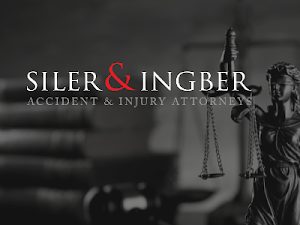Understanding Your Rights with Personal Injury Claims in New York
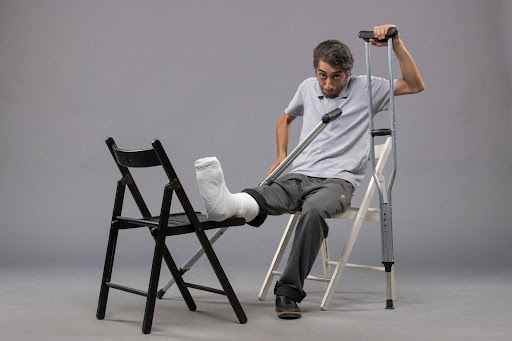
What are your rights as a victim of an automobile accident or a worker’s compensation case or as a slip-and-fall case victim? So, they are twofold but when you understand the legal procedures you can be in a better position to seek justice and be compensated where necessary. In NYLawnet, we provide New Yorkers with the information they need to help them through the process of filing a claim for personal injury. Compensation of Injuries for Right Holders When in New York, everyone has the privilege of recovering for harm caused by the negligence or act of another. Such are personal injuries, damages for medical expenses, lost wages, pain and suffering, and for property damage. If the injuries clearly cause you long-term disability or need ongoing treatment in future, your claim can also address these costs. Statute of Limitations The most important element of a personal injury lawsuit in New York is the time frame in which the lawsuit must be filed, referred to as the statute of limitations. New York State law positions the general rule for personal injury claim at 3 years from the date of the accident. Consulting with a Bronx Car Accident Lawyer or a Construction Accident Attorney In Manhattan can help ensure you file your claim within the allowable period. Is It Possible to Avoid Liability for Car Damage or Injuries? No-Fault Insurance What you should know is that New York is mainly what we call a no-fault state when it comes to auto accidents, therefore your insurance company will be the one that pays for your medical bills and any lost wages regardless of any fault. Negligence and Liability In New York, to succeed in the personal injury claim you have to demonstrate that the other party was at fault and caused your injuries. Negligence can be gross or minor which include but not limited to the cases like a driver who rammed the signal/traffic light at red, a landlord/owner who let their premises to erect in a dangerous way, an employer who chose to ignore any safety measures. The more proof you can accumulate to indicate negligence, the better your chance will be. Comparative Fault in New York Like many other states, New York is like a comparative negligence state as it allows you to recover even if you are in some way at fault. However, your compensation will be less the amount of the percentage of fault attributed to you. For instance, if you are awarded $5000 but you are deemed to be at 30% to blame, your award will be cut down to $3500. Types of Damages Available When filing a personal injury claim, you may be entitled to several types of damages: Economic Damages: These include the physical losses such as; medical expenses, wages lost, and costs of repair. Non-Economic Damages: These are for personal injuries and include pain and suffering, emotional distress or loss of enjoyment of life. Punitive Damages: You may also receive punitive damages in case of negligence or even if the perpetrator acted in bad faith, with the purpose of causing harm. Everyone needs the services of an experienced personal injury lawyer from time to time. It can be very confusing at times to determine whether or not an individual has a claim for personal injuries, this is why people require a personal attorney. At NYLawnet, we assign dedicated professionals, such as a Construction Accident Lawyer In Long Island or a Bicycle Accident Lawyer In The Bronx, to review your case, gather evidence, negotiate with insurers, and represent you in court if necessary. Conclusion Before you can properly protect your interests and receive a fair compensation for your injuries in New York, it is important to know what your rights are. In deciding whether one can follow through to initiating a wrongful termination lawsuit, or understand how much time one has for filing a lawsuit, knowing your rights can go a long way in making a change in the outcome of your case. If you or a close one have suffered an injury, contact NYLawnet right now for a free consultation to talk about legal remedies available and how those could help you.
Top 5 Reasons to Hire a Personal Injury Attorney After an Accident in NYC

You never know when an accident is going to happen and it leaves you and your family stressed out. If you have been in a car accident, slip and fall, or a workplace injury, hiring a New York City personal injury attorney will have a lot of impact on the case. Below are the five reasons why you should hire a personal injured after an accident in Construction Accident Lawyers New York City. Specialized And Informative Legal Experience This is because personal injury law has many subcategories of law, and many aspects of them may not be straightforward. In fact, a competent personal injury lawyer has legal experience to handle these issues to justify your side. From the periods within which to file for compensation to the ways of approaching the case with a view to proving negligence among other things, an attorney shall assist the client throughout the process. Maximizing Your Compensation Generally, when one gets involved in an accident its harder to determine the amount of compensation one is eligible for. For this reason, insurance companies will offer you a compensation that is far less than what is legally due. An experienced personal injury attorney will be able to advise you about your losses, and properly calculate conventional damages such as medical bills, loss of wages, pain and suffering, future rehabilitation charges and more. Insurance companies or, in extreme cases, going to court is what a lawyer will do to ensure that your compensation amount is as high as possible. Handling All The Legal Work Regrettably, after having been involved in an accident, the last thing one would want to think about is filling complicated paper work and meeting specific time limits. When you hire a personal injury attorney, they will handle all the paperwork that is required in the filing of claims, collection of evidence and to ensure that you meet all the appropriate time bar. This is because sometimes you might find that you are overwhelmed by the legal procedures on the idle while you need to concentrate on recovering. Fact Finding In any given personal injury case it is important to do a proper search and gather enough proofs. Your attorney shall have legal means to gather materials that may include; medical records, reports of the accident scene, statements from any witnesses, experts who can offer their testimony in court. In some cases, this will mean consulting with hires such as accident reconstruction specialists or medical professionals that can testify to the utter severity of your injuries. This allows you to have the best case that you can ever have in law thanks to its exhaustive method. Peace Of Mind And Support Life can be challenging as it is and having to live with the consequence of an accident with injuries and medical bills and insurance to pay. It means that when you hire a personal attorney in NYC you are relieved because you know that your case is in the hands of a professional. This leaves you to concentrate on your physical and emotional healing than having to worry about how to solve legal problems. Conclusion If you have been involved in an accident, and are a victim of another’s negligence, carelessness, or wilful wrongdoing, a personal injury attorney can greatly enhance your chances of being fairly compensated and getting what you deserve. Depending on your type of case, your lawyer will help you to understand legal issues, collect important evidence or seek compensation from insurance companies. If you have been involved in Construction Accident Lawyer Queens or Car Accident Lawyer Bronx, seek legal services from NYLawnet as they are the best attorneys. It is the time for us to stand up for your rights as you concentrate on your treatment process.
How Much Should You Ask for In a Slip and Fall Accident Claim?

Table of Contents : How Much Should You Ask for In a Slip and Fall Accident Claim? Understanding Slip and Fall Claims Factors Influencing Your Claim Amount Working with an Injury Attorney Conclusion Slip and fall accidents are unpredictable. Whether it’s a slippery floor at the grocery store, an icy sidewalk, or a poorly lit stairway, these incidents can lead to serious injuries and substantial financial burdens. If you’ve been injured in a slip-and-fall accident, understanding how much to ask for in your claim is crucial. Working with an experienced injury attorney can help you navigate this complex process and ensure you receive the compensation you deserve. Understanding Slip and Fall Claims When you suffer an injury, you may be entitled to compensation for your losses. These losses, known as damages, can include medical expenses, lost wages, pain and suffering, and other related costs. The amount you should ask for in your claim depends on several factors, including the severity of your injuries, the circumstances of the accident, and the impact on your life. Factors Influencing Your Claim Amount Severity of Injuries The more severe your injuries, the higher your medical expenses and the greater the impact on your life. Serious injuries often require extensive medical treatment, and rehabilitation, and may result in long-term or permanent disability. An injury attorney can help document the full extent of your injuries and their impact on your life. Medical Expenses Your claim should cover all medical expenses related to the accident, including emergency room visits, surgeries, medications, physical therapy, and any future medical costs. Keep detailed records of all medical treatments and consult with your injury attorney to ensure all expenses are accounted for. Lost Wages and Loss of Earning Capacity You may be entitled to compensation for lost wages if your injuries bar you from working. Additionally, if your ability to earn a living is permanently affected, you can seek damages for loss of earning capacity. An injury attorney can help calculate these losses accurately. Pain and Suffering Pain and suffering damages compensate you for the physical pain and emotional distress caused by your injuries. These damages can be more challenging to quantify, but an experienced injury attorney will use their expertise to determine a fair amount based on similar cases and the specific details of your situation. Liability and Negligence It’s important to establish liability in a slip-and-fall claim. You must prove that the property owner or occupier was negligent and that their negligence led to your accident. An injury attorney will gather evidence, such as witness statements, surveillance footage, and maintenance records, to build a strong liability case. Comparative Negligence New York follows a comparative negligence rule, meaning your compensation may be reduced if you are found partially at fault for the accident. An injury attorney can help minimize the impact of any alleged negligence on your part to maximize your compensation. Working with an Injury Attorney Navigating a slip-and-fall claim can be daunting, especially when dealing with insurance companies and legal complexities. An experienced injury attorney is invaluable in this process. They will: Evaluate Your Case: An injury attorney will assess the strength of your case, estimate the value of your claim, and advise you on the best course of action. Gather Evidence: Your attorney will collect all necessary evidence to support your claim, including medical records, accident reports, and expert testimony. Engage in Insurance Company negotiations: Insurance companies try to cut down the amount as much as possible. An injury attorney will negotiate on your behalf to ensure you receive a fair settlement. Represent You in Court: If your case goes to trial, having a skilled injury attorney by your side is crucial. They will present your case effectively to achieve the best possible outcome. Conclusion Determining how much to ask for in a slip and fall accident claim involves careful consideration of various factors. By working with a knowledgeable injury attorney, you can ensure that all aspects of your claim are addressed. At NYlawnet, our experienced injury attorneys are dedicated to helping you navigate the legal process and achieve a fair settlement. Contact us today for a consultation and let us help you on the path to recovery.
Can You Sue for Road Rash After a Motorcycle Accident?
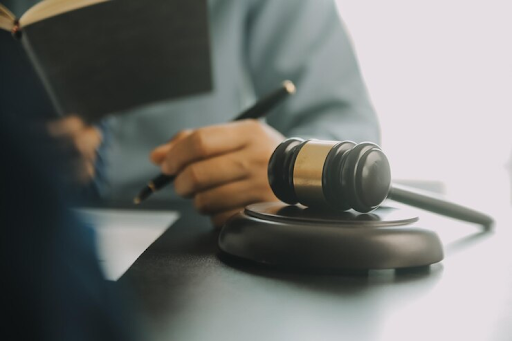
Table of Contents : Can You Sue for Road Rash After a Motorcycle Accident? Understanding Road Rash Can You Sue for Road Rash? Steps to Take After a Motorcycle Accident The Role of an Injury Attorney Conclusion Motorcycle accidents often result in severe injuries due to the lack of protective barriers between the rider and the road. If you’ve suffered from road rash after a motorcycle accident, you might wonder whether you can sue for your injuries. At NYlawnet, we understand the complexities surrounding motorcycle accident claims and the critical role an injury attorney plays in securing the compensation you deserve. Understanding Road Rash Road rash occurs when a motorcyclist’s skin makes contact with the pavement during an accident, causing layers of skin to be scraped away. The intensity of road rash can differ: First-Degree: Minor scrapes and bruises that affect the outer layer of the skin. These injuries are typically painful but heal with minimal medical intervention. Second-Degree: Deeper abrasions that damage multiple skin layers and may cause bleeding. These injuries require medical attention to prevent infection and promote healing. Third-Degree: Severe injuries that scrape away all layers of skin, exposing muscle and bone. These injuries often require surgical treatment, including skin grafts, and can result in permanent scarring and disfigurement. Can You Sue for Road Rash? Yes, you can sue for road rash after motorcycle accidents, especially if the injury resulted from another party’s negligence. This is how an injury lawyer can help: Proving Negligence: To file a successful lawsuit, you must prove that another party’s negligence caused the accident. This involves demonstrating that the other driver failed to exercise reasonable care, such as by speeding, running a red light, or driving distracted. An experienced injury attorney can gather evidence, including police reports, eyewitness statements, and traffic camera footage, to establish negligence. Calculating Damages: Road rash can lead to significant medical expenses, including emergency care, ongoing treatments, and physical therapy. Additionally, severe road rash can result in lost wages if you’re unable to work and emotional distress due to pain and suffering. An injury attorney will help you calculate the full extent of your damages to ensure you seek adequate compensation. Insurance Company settlements: Insurance companies often try to lessen the payouts. An injury attorney can handle negotiations on your behalf, ensuring that you receive a fair settlement that covers your medical bills, lost income, and other related expenses. Representing You in Court: If a fair settlement cannot be reached, your injury attorney can take your case to court. They will represent your interests, present evidence, and advocate for the compensation you deserve. Steps to Take After a Motorcycle Accident If you suffer road rash after a motorcycle accident, taking the following steps can strengthen your case: Seek Immediate Medical Attention: Prompt medical care is crucial for treating road rash and preventing complications. Medical records will also serve as important evidence in your lawsuit. Document Your Injuries: Take photos of your road rash and keep a journal of your symptoms, treatments, and the impact on your daily life. This documentation can support your claim for damages. Report the Accident: File a police report immediately after the accident. Ensure that the report includes details about how the accident occurred and any witnesses. Consult an Injury Attorney: Contact an injury attorney as soon as possible to discuss your case. Early legal intervention can help preserve evidence and ensure that you meet any filing deadlines. The Role of an Injury Attorney An injury attorney plays a vital role in guiding you through the legal process after a motorcycle accident. At NYlawnet, our attorneys are experienced in handling motorcycle accident cases and understand the unique challenges faced by road rash victims. Conclusion Road rash is a common and painful consequence of motorcycle accidents. If you have suffered road rash due to another party’s negligence, you have the right to seek compensation for your injuries. An experienced injury attorney can help you navigate the complexities of personal injury law, from proving negligence to negotiating with insurance companies and representing you in court. At NYlawnet, we are dedicated to supporting motorcycle accident victims and ensuring they receive the justice they deserve. Contact us today to discuss your case and learn how we can assist you in your recovery journey.
What Does Bobtailing Mean and How Can It Lead to Accidents?

Table of Contents : What Does Bobtailing Mean and How Can It Lead to Accidents? Defining Bobtailing: The Allure of the Open Road: Challenges of Bobtailing: Reduced Traction: Increased Stopping Distance: Unpredictable Handling: Jackknifing: Skidding and Hydroplaning: Rollover Incidents: The Role of Personal Injury Lawyers: In the vast expanse of highways and byways, a term often whispered among truckers and transportation enthusiasts is “bobtailing.” While it may sound like the name of a peculiar dance move, bobtailing holds a more serious connotation in the world of trucking. Here in this, we’ll figure out what bobtailing means and explore the potential risks it poses on the road, including how it can lead to accidents and the crucial role a personal injury lawyer might play. Defining Bobtailing: Bobtailing refers to the operation of a semi-truck without a trailer attached. In simpler terms, it’s when the truck is only hauling its cab and not pulling any cargo behind. This situation usually arises when a trucker travels to pick up a new load or returns to their base after delivering goods. The Allure of the Open Road: For truckers, bobtailing might seem like a liberating experience. The cab glides smoothly without the cumbersome weight of a trailer, offering a sense of freedom and improved maneuverability. However, this seemingly carefree journey conceals potential hazards that can transform the open road into a danger zone. Challenges of Bobtailing: Reduced Traction: Without the added weight of a trailer, the rear wheels of the cab have decreased traction. This can make it challenging for the trucker to maintain control, especially in adverse weather conditions like rain or snow. Increased Stopping Distance: The absence of a trailer diminishes the overall weight of the vehicle, impacting its braking capabilities. Bobtailing trucks require a longer distance to come to a complete stop compared to when hauling a load. Unpredictable Handling: The dynamics of a bobtailing truck differ significantly from a fully loaded one. Sudden movements, such as sharp turns or abrupt stops, can lead to instability and a loss of control. Accident Risks: Jackknifing: The term jackknifing describes the folding of the cab and trailer at an acute angle. Bobtailing increases the risk of jackknifing, especially during sudden braking or steering maneuvers. Skidding and Hydroplaning: The reduced traction can result in skidding on wet or slippery surfaces. Hydroplaning, where the tires lose contact with the road due to a layer of water, becomes more likely. Rollover Incidents: The instability of bobtailing trucks elevates the risk of rollover accidents, particularly when negotiating turns at high speeds. The Role of Personal Injury Lawyers: In the unfortunate event of a bobtailing-related accident, the consequences can be severe, leading to injuries or even fatalities. Personal injury lawyers specialize in navigating the legal complexities surrounding such incidents. They can help victims seek compensation for medical expenses, lost wages, and emotional distress caused by the accident. Bobtailing may seem like a mundane term in the vast lexicon of trucking, but its implications on the road are far-reaching. The allure of freedom and agility can quickly transform into a perilous journey. Recognizing the risks associated with bobtailing is crucial for both truckers and fellow road users. In an accident, consulting a personal injury lawyer from the Siler & Ingber team in New York becomes imperative to navigate the legal aftermath and ensure justice for those affected by the consequences of bobtailing on the open road.
Should I Hire A Lawyer After A Minor Accident?
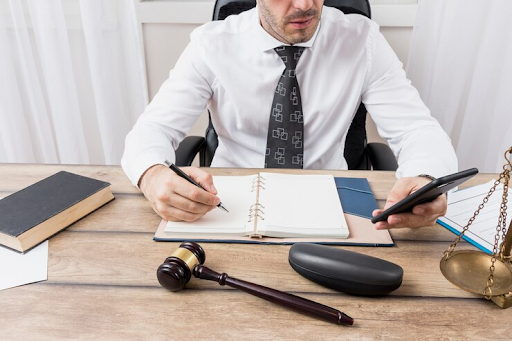
Table of Contents : Should I Hire A Lawyer After A Minor Accident? The Mellow Collision Dilemma: DIY or Attorney Play? When to Call in Reinforcements: An Attorney’s Expertise: Financial Friend or Foe? Conclusion Hey there, fellow New Yorkers! We hope you’re cruising through life without any bumps in the road, but let’s face it – accidents happen, even minor ones. So, you find yourself in a fender-bender, a small mishap that leaves you wondering, “Should I hire a lawyer after a minor accident?” Well, buckle up, because here in this write-up we shall discuss whether you need an accident attorney in New York by your side or not. The Mellow Collision Dilemma: Picture this: you’re stuck in a traffic jam on the FDR Drive, and suddenly, a gentle tap on your bumper interrupts your daydreaming. It’s a minor collision, with no injuries, just a few dents and scratches. Now, the question arises – do you need to lawyer up for this? Assessing the Damage: Before you dial your favorite attorney, take a deep breath and assess the situation. Is the damage limited to a few scratches and minor dings? Are there any injuries, even the tiniest ones? If it’s a resounding “no,” you might be able to settle things without involving a legal eagle. DIY or Attorney Play? If the damage is minor and everyone involved is unharmed, you could consider handling the situation on your own. Exchange information with the other party, take some photos of the damage and file a report if necessary. However, if things start to get complicated, it might be time to bring in the professionals. When to Call in Reinforcements: Now, let’s say your minor accident isn’t as smooth as a Sunday drive in Central Park. The other driver is uncooperative, insurance companies are playing hardball, or you’re facing unexpected medical bills. This is where the magical touch of an accident attorney in New York comes into play. An Attorney’s Expertise: Accident attorneys are like superheroes in suits. They know the ins and outs of the legal system, can negotiate with insurance companies, and handle the nitty-gritty details that might make your head spin. Their expertise can be especially valuable when dealing with complex cases or uncooperative parties. Financial Friend or Foe? You might think, “Hiring an attorney would burn a hole in my pocket” Honestly, it will not! Most the accident attorneys work on a contingency fee basis, which means that the lawyer will only get paid if you win your case. So, it’s more like having a financial ally than a burden. Conclusion In the end, whether to hire a lawyer after a minor accident in the Big Apple depends on the specific circumstances. If it’s a straightforward fender-bender, you might navigate the situation on your own. However, if the road gets bumpy, don’t hesitate to reach out to an experienced accident attorney in New York such as Siler & Ingber. They can be the key to ensuring your rights are protected and helping you cruise smoothly through the aftermath of a minor mishap. Drive safely, New Yorkers!
Can You Get Whiplash Even When You Wear A Seatbelt?

Table of Contents : Can You Get Whiplash Even When You Wear A Seatbelt? The Mechanics of Whiplash: Seatbelts and Whiplash: The Role of Proper Seatbelt Use: The Importance of Headrests: Legal Perspectives: Conclusion In the hustle and bustle of daily life, car accidents are unfortunately not uncommon. While seatbelts are our trusty companions in the realm of road safety, a lingering question remains: Can you get whiplash even when you wear a seatbelt? Let’s jump into this topic and uncover the nuances that might surprise you. Also, shall discuss the role of a personal injury attorney. The Mechanics of Whiplash: Whiplash, an injury often associated with rear-end collisions, occurs when the head is suddenly jerked backward and then forward. This rapid motion strains the neck’s muscles and ligaments, leading to pain and discomfort. But what about seatbelts? Aren’t they supposed to keep us secure? Seatbelts and Whiplash: Seatbelts are indeed a crucial line of defense in a car crash. They are designed to restrain our bodies, preventing us from being thrown forward. However, they primarily secure the torso, leaving the head more susceptible to movement. In the event of a sudden impact, the head might still experience a whipping motion, even with the seatbelt on. The Role of Proper Seatbelt Use: While seatbelts can’t eliminate the risk of whiplash, using them properly can significantly reduce the severity of injuries. Ensure that the seatbelt is snug across your lap and chest, as this will better distribute the force of impact and stabilize your upper body. The Importance of Headrests: Headrests, often overlooked but crucial in preventing whiplash, can play a vital role in minimizing the impact on your neck. Adjust your headrest to the appropriate height, ensuring that it is directly behind your head. This small adjustment can make a big difference in protecting your neck during a collision. Legal Perspectives: In the unfortunate event that you do experience whiplash despite wearing a seatbelt, seeking the advice of a personal injury attorney is crucial. Car accident lawyers in New York, such as Siler & Ingber for instance, specialize in navigating the complexities of personal injury cases. They can assess the circumstances of your accident and help determine if there are grounds for legal action. Conclusion In the world of road safety, seatbelts are our frontline defense, but they may not provide absolute immunity from whiplash. Understanding the mechanics of the injury, ensuring proper seatbelt use, and optimizing headrests are essential steps in minimizing the risk. If you find yourself grappling with whiplash after a car accident, consulting with a knowledgeable personal injury attorney, especially one well-versed in car accident cases in New York, can help you explore your legal options. Remember, safety on the road is a shared responsibility, and being informed is the first step towards a safer journey.
Will I Be Held Accountable For the Accident if My Car Slips on Ice?
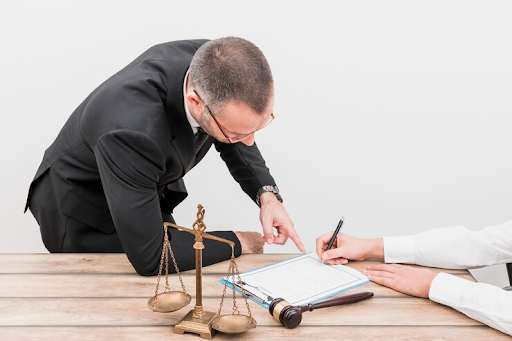
Table of Contents : Will I Be Held Accountable For the Accident if My Car Slips on Ice? Understanding Liability in Icy Road Accidents Comparative Negligence in New York What can a New York Personal Injury Lawyer do to Help You? As winter blankets the streets of New York with a glistening layer of ice the city transforms into a winter wonderland – but for drivers, it also becomes a precarious terrain. The glittering streets, while picturesque, pose a heightened risk of accidents, leaving motorists grappling with concerns about potential liabilities when their vehicles slip on the icy roads. In this blog, we embark on a journey through the legal landscape of icy road accidents in New York, exploring the nuanced factors that determine liability. As the icy dance of winter unfolds on the asphalt canvas, the question lingers: Will I be held accountable for an accident if my car slips on ice? Let’s dive into the legal intricacies and discover how a personal injury lawyer might play a pivotal role in navigating these frosty uncertainties. Understanding Liability in Icy Road Accidents New York, known for its harsh winters, poses unique challenges for drivers when it comes to navigating icy roads. The question of liability in an accident involving a slip on ice often depends on various factors. While ice-covered roads present inherent dangers, drivers are still expected to exercise reasonable care and adjust their driving behavior to the road conditions. Comparative Negligence in New York New York follows a comparative negligence system, which means that liability in an accident can be shared between multiple parties based on their degree of fault. If your car slips on ice, the court may consider factors such as your speed, the condition of your tires, and whether you took necessary precautions to prevent an accident. For instance, if it is determined that you were driving too fast for the icy conditions or failed to maintain your vehicle properly, you may be deemed partially responsible for the accident. However, if road maintenance or signage issues contributed to the incident, liability could be shared with relevant authorities. What can a New York Personal Injury Lawyer do to Help You? When facing the aftermath of an accident on icy roads, consulting with a New York personal injury lawyer becomes crucial. A seasoned attorney can assess the circumstances surrounding the accident, gather evidence, and determine the liable parties. Their expertise in personal injury law allows them to navigate the complexities of the legal system and advocate for your rights. A skilled lawyer will work towards establishing a strong case to minimize your liability or negotiate a fair settlement on your behalf. They can also guide you through the process of filing a claim and represent you in court if necessary, ensuring that you receive the compensation you deserve. While accidents on icy roads are common in New York, liability is not always straightforward. The key lies in demonstrating that you exercised reasonable care given the road conditions and that other factors, such as poor maintenance or inadequate signage, contributed to the accident. To protect your rights and navigate the legal complexities, it’s essential to seek the assistance of a qualified personal injury lawyer in New York, such as Siler & Ingber who can guide you through the process and advocate for your best interests.
Can You Sue Despite Signing a Waiver?

We’ve all been there – signing a waiver before engaging in an activity, be it a thrilling adventure or a simple workout at the gym. It’s a common practice for businesses and organizations to protect themselves from potential legal liabilities. But what happens if you find yourself injured despite having signed that piece of paper? Can you still sue? Let’s explore the intricacies of waivers and the role of a personal injury lawyer in such situations. Understanding Waivers: A waiver is a legal document that participants sign to acknowledge the inherent risks associated with an activity. By signing it, you essentially agree not to hold the business or organization responsible for any injuries or damages that may occur. However, this doesn’t mean that all waivers are foolproof. Exceptions to Waivers: While waivers provide a level of protection for businesses, there are instances where they may not hold up in court. Courts often consider the following factors: Gross Negligence: If the injury resulted from the willful or reckless conduct of the business or its employees, a waiver may not be enforceable. Courts may not uphold waivers that shield parties from gross negligence. Ambiguity: If the waiver is unclear or contains ambiguous language, it may not be legally binding. A well-drafted waiver should explicitly outline the risks involved in the activity. Public Policy: Courts may invalidate waivers that go against public policy or involve illegal activities. For example, a waiver attempting to release a business from liability for intentionally causing harm would likely be unenforceable. Unconscionability: If the terms of the waiver are overly one-sided, oppressive, or unfair, a court may deem it unconscionable and refuse to enforce it. The Role of a Personal Injury Lawyer If you’ve been injured despite signing a waiver, consulting with a personal injury lawyer is crucial. These legal professionals specialize in navigating the complex terrain of personal injury law and can help you determine the validity of the waiver in your specific case. Reviewing the Waiver: A personal injury lawyer will carefully review the waiver to identify any potential weaknesses or factors that may render it unenforceable. Investigating Negligence: The lawyer will investigate the circumstances surrounding your injury to determine if there was any negligence on the part of the business or its employees. Negotiating with Insurers: Personal injury lawyers are skilled negotiators who can engage with insurance companies on your behalf to secure fair compensation for your injuries. Litigation if Necessary: If a fair settlement cannot be reached, your lawyer may guide you through the process of filing a lawsuit and represent you in court. Signing a waiver doesn’t necessarily mean you forfeit your right to seek compensation for injuries. The enforceability of a waiver depends on various factors, and the expertise of a personal injury lawyer is invaluable in navigating this legal landscape. If you find yourself in such a situation, don’t hesitate to consult with a legal professional from the Siler & Ingber team who can help you understand your rights and pursue the justice you deserve. Remember, not all waivers are bulletproof, and your well-being should always be a priority.
Why Future Damages are Critical for a Personal Injury Claim
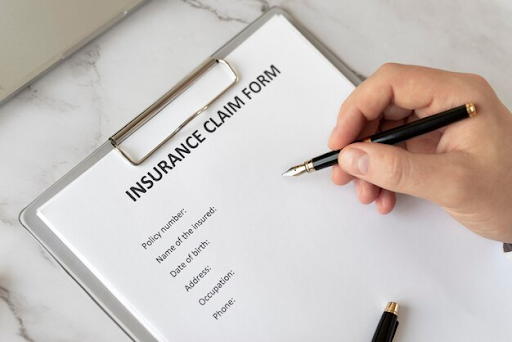
In the aftermath of a personal injury, navigating the legal landscape can be overwhelming. You’re dealing with physical pain, emotional distress, and mounting medical bills. In such trying times, hiring a personal injury lawyer becomes not just a choice, but a necessity. One aspect that often takes center stage in these cases is the consideration of future damages. Understanding Future Damages When we talk about personal injury claims, we usually think of immediate medical expenses and compensation for current suffering. However, the impact of an injury can extend far beyond the present moment. Future damages encompass the ongoing consequences of your injury that may affect your life for weeks, months, or even years to come. The Far-reaching Consequences Imagine sustaining a severe injury that requires prolonged medical treatment, rehabilitation, or perhaps even a permanent disability. In such cases, the financial and emotional toll can be immense. A personal injury lawyer recognizes the importance of evaluating the long-term effects to ensure that you are adequately compensated for the life-altering changes caused by the incident. Financial Security in the Long Run Future damages take into account not only the current medical bills but also the anticipated costs of ongoing medical care and rehabilitation. Your personal injury lawyer works tirelessly to establish a comprehensive picture of your future needs, ensuring that you are not left shouldering the burden of these expenses alone. Lost Earning Capacity In many instances, a personal injury can impact your ability to work and earn a living. This loss of earning capacity is a critical factor in calculating future damages. A skilled personal injury lawyer will work with financial experts to estimate the potential income you might have earned if not for the injury, securing compensation that addresses this aspect of your life. Emotional and Psychological Effects Beyond the physical toll, personal injuries can leave lasting emotional scars. Anxiety, depression, and post-traumatic stress disorder (PTSD) are common consequences that may manifest over time. Recognizing and addressing these emotional damages is essential for your overall well-being, and your personal injury lawyer will ensure that these aspects are considered in your claim. Why a Personal Injury Lawyer Matters Navigating the complexities of future damages requires legal expertise. A personal injury lawyer specializes in building a compelling case that takes into account not only your immediate suffering but also the enduring consequences of the injury. Their experience allows them to work with medical professionals, economists, and other experts to present a thorough and accurate assessment of your future needs. When pursuing a personal injury claim, understanding the significance of future damages is paramount. It’s not just about seeking compensation for the here and now; it’s about securing your future well-being. A personal injury lawyer acts as your advocate, ensuring that all aspects of your injury, both immediate and long-term, are considered and addressed. With siler and Ingber team’s guidance, you can move forward with the confidence that your claim comprehensively reflects the true impact of the incident on your life.

